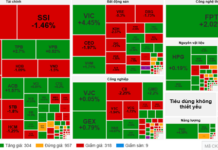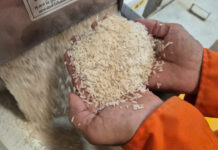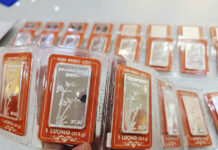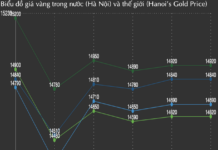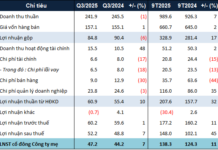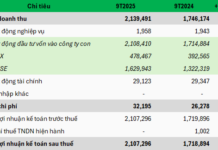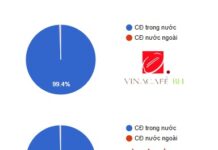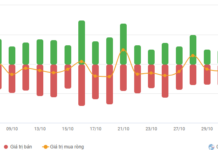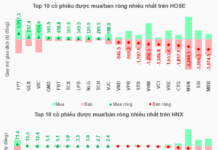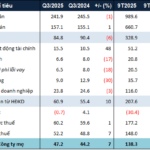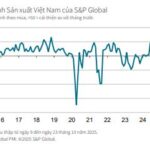Vietnamese Companies Expanding Through Mergers and Acquisitions
Mrs. Le Thi Giau, Chairman of Binh Tay Food Joint Stock Company (BIFOCO), announced that the company has acquired a factory from a Taiwanese company in Ho Chi Minh City to increase its production capacity. BIFOCO is also expediting the construction of a new factory in Dong Nai to increase its production capacity by up to five times the current level to meet the rising demand.
Enhancing Production Capacity
According to Mrs. Giau, the export market accounts for approximately 70% of BIFOCO’s output. “This year, we plan to export about 1,000 containers of products to Asian, European, and American markets, equivalent to $50 million. With this export growth, the company’s revenue is expected to increase by 300%-400% compared to last year,” said Mrs. Giau.
In the context of a challenging global economic landscape, the food industry is less impacted compared to other sectors. Abundant orders during this period present a significant opportunity, encouraging businesses to boldly invest in their development. Acquiring a readily available factory with good equipment allows for immediate production, making it an optimal choice.
Thanh Cong Textile and Garment Joint Stock Company recently informed its shareholders of its decision to invest hundreds of billions of dong to acquire the SY Vina dyeing and weaving factory in Dong Nai. The company’s management stated that they needed a dyeing license, and acquiring SY Vina would help expedite the expansion of their product portfolio into woven fabric to develop higher-value garment orders. Products from the SY Vina factory are expected to be exported directly to the US market.
In another instance, Coteccons Construction Joint Stock Company has acquired 100% of the capital contributions of two foreign-invested companies, Sinh Nam Metal Vietnam Co., Ltd., and UG Vietnam Co., Ltd. (UG M&E).
In the retail sector, in 2021, Thaco, owned by billionaire Tran Ba Duong, acquired the Emart hypermarket. Today, Thaco’s subsidiary, Thiso, successfully operates and has opened two additional Emart hypermarkets in Ho Chi Minh City. Similarly, Saigon Co.op’s takeover of Auchan’s chain of 18 supermarkets demonstrates the growth and strength of Vietnamese enterprises.
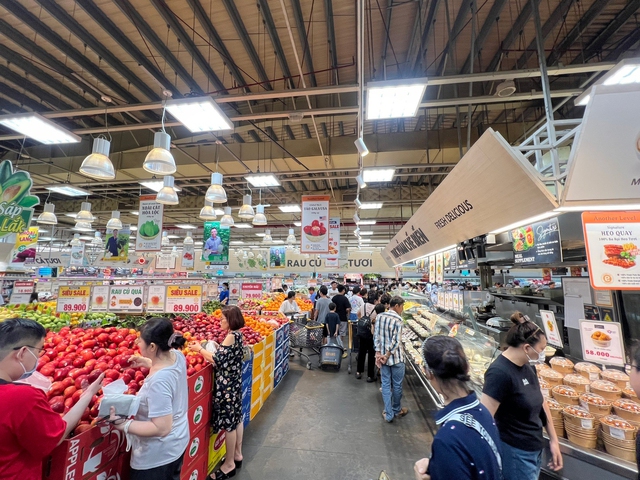
Thaco Group acquired the Emart supermarket from its Korean partner and opened two more supermarkets after the successful merger.
No Longer a Rare Occurrence
Before the wave of domestic enterprises acquiring foreign companies in Vietnam, many prominent Vietnamese companies, such as FPT, Masan, Vinamilk, REE, and Nutifood, had successfully executed a series of M&A transactions outside Vietnam to expand their customer base and business opportunities and gain a competitive edge. For instance, since 2016, Vinamilk has completed the acquisition of Driftwood (USA), opening up more opportunities to export dairy products to the US market.
In 2020, Masan Group, after acquiring the tungsten business platform of H.C. Starck (Germany), became a manufacturer of advanced industrial materials, supplying source materials for various industries, including mechanical engineering, automotive, energy, and aerospace.
Recently, FPT Group has been actively acquiring foreign technology companies. In 2023, FPT purchased 80% of the shares of French technology consulting company AOSIS, enabling FPT to enhance its capacity to provide solutions and support European and global clients in their digital transformation journeys. Before acquiring AOSIS, FPT had also become a significant investor in Landing AI, an American computer vision and AI software company (October 2023), and Cardinal Peak, a technology services company in the North American market (December 2023).
According to statistics from the Ministry of Planning and Investment, outbound investment has grown significantly in recent times. In the first two months of 2024, Vietnamese investors implemented 17 new investment projects abroad, focusing on wholesale and retail (39.4%), real estate (21.5%), and construction (20%). The top investment destinations were the US (26.6% of total investment), New Zealand (23.5%), Germany (21.5%), Laos, China, and others.
Dr. Phan Huu Thang, former Director of the Foreign Investment Agency (Ministry of Industry and Trade), stated that investing abroad, including M&A of foreign companies, enables Vietnamese enterprises to quickly expand their markets, exploit strategic assets, and enhance their integration into the global economy. Additionally, through these activities, businesses can gain access to advanced management experience and technologies from foreign partners, enabling them to grow faster and reach further.
From a business perspective, Mr. Nguyen Dang Hien, Vice Chairman of the Ho Chi Minh City Food and Foodstuff Association, commented that Vietnamese businesses acquiring foreign companies is an encouraging trend. With 97% of Vietnamese enterprises being small and medium-sized or super small, only 3% are large enterprises. Businesses can choose to acquire companies that align with their development strategies, considering their scale and financial capabilities. “Market competition is increasingly fierce, and having more robust Vietnamese enterprises will create competitive advantages and boost the strength of Vietnamese products, businesses, and the economy,” added Mr. Hien.
Bridge from Overseas Vietnamese Enterprises
Mr. Nguyen Chanh Phuong, Secretary-General of the Ho Chi Minh City Association of Fine Arts and Wood Processing (HAWA), noted a wave of young Vietnamese entrepreneurs, intellectuals, and professionals residing abroad who are investing and starting businesses in their host countries. These new-generation overseas Vietnamese have business, commercial, and service activities closely linked to their operations in Vietnam. “Through the bridge of these new-generation overseas Vietnamese enterprises, many advanced technologies and knowledge from around the world are transferred and updated to Vietnam. Conversely, many Vietnamese products have been successfully exported,” said Mr. Phuong.

